
While some smells around the home are very welcome – baking bread, fresh coffee, a bunch of fresh flowers – there are others that are signs that something is seriously amiss.
'When it comes to weird or persistent smells in your home they are often more than just a stink – many are warning signs of big problems,' says Gordon Chalk and Alan Houghton, managing directors of Next Level Underfloor Heating and Screed Solutions. 'From our experience in the construction industry, we have seen many cases where identifying and fixing these smells early on has saved major headaches and costs further down the line.'
With that in mind, we're here to bring you the most common smells that indicate a problem within the home so that you can source the best cleaning tips and home fragrance tricks to put things right before they get more serious – and instead focus your attention on the things that make your home smell good all the time.
1. Rotten Eggs
This one is hard to miss and certainly isn't one of the most romantic scents for a home. If you pick up on a waft of rotten eggs, it probably isn't coming from your kitchen.
'If you catch a whiff of rotten eggs, it might mean you’ve got a gas leak,' warns Elizabeth Shields, operations manager at Super Cleaning Service Louisville, a professional cleaning company based in Louisville, Kentucky. 'Head to your gas appliances, like the stove or water heater, and check for leaks. You’ll usually see a yellow flame or soot around burners as a tell-tale sign. If you suspect a leak, get out and call your gas company immediately. Don’t light any matches or flip switches.'
'The smell of sulfur, or rotten eggs, is a sign of a potentially life-threatening gas leak,' picks up Gordon Chalk. 'Natural gas and propane are odorless, but suppliers add a sulfur-like smell to alert homeowners to leaks.
'A gas leak is an immediate danger of explosion or carbon monoxide poisoning,' continues Gordon. 'It will usually be strongest near gas appliances like stoves, water heaters or furnaces.
'You should also be alert to a hissing sound near gas lines or appliances and you may notice the smell gets stronger near vents or outside the home where the gas meter is located,' continues Gordon.
'Get out of the house and call your gas company or emergency services from outside. Do not switch on or off any electrical devices or light matches as this could ignite the gas – and do not try to find the leak yourself or stay in the house while investigating the smell.'
2. Sweet chemical smells
Rarely is a chemical smell the sign of something good, but when it comes to your home, this really is one to sit up and pay attention to.
'A sweet, chemical-like smell might indicate a refrigerant leak from your HVAC system,' explains Yaeir Moinzadeh, owner at Blue Rise Baltimore Roofing. 'This requires immediate professional attention.'
'If you notice a strong chemical smell, a little like acetone or paint thinner, in your home and you haven’t used any products with those smells, it could mean a refrigerant leak from your air conditioner or HVAC system,' agrees Gordon Chalk.
That said, chemical smells can also be a sign of something else.
'It could be a sign that you’ve got some cleaning products or solvents leaking somewhere,' points out Elizabeth Shields. 'Check where you stash them, maybe under the sink in your kitchen or bathroom, and maybe your garage if you’ve got supplies there. Keep an eye out for any spilled liquids or damaged containers. If there is, crack the window open, check if the products can still be used, and transfer them into a new bottle. If not, dispose of them properly.'
It is also worth looking into how to clean a kitchen without chemicals so you can minimize the risk of any future smelly spillages.
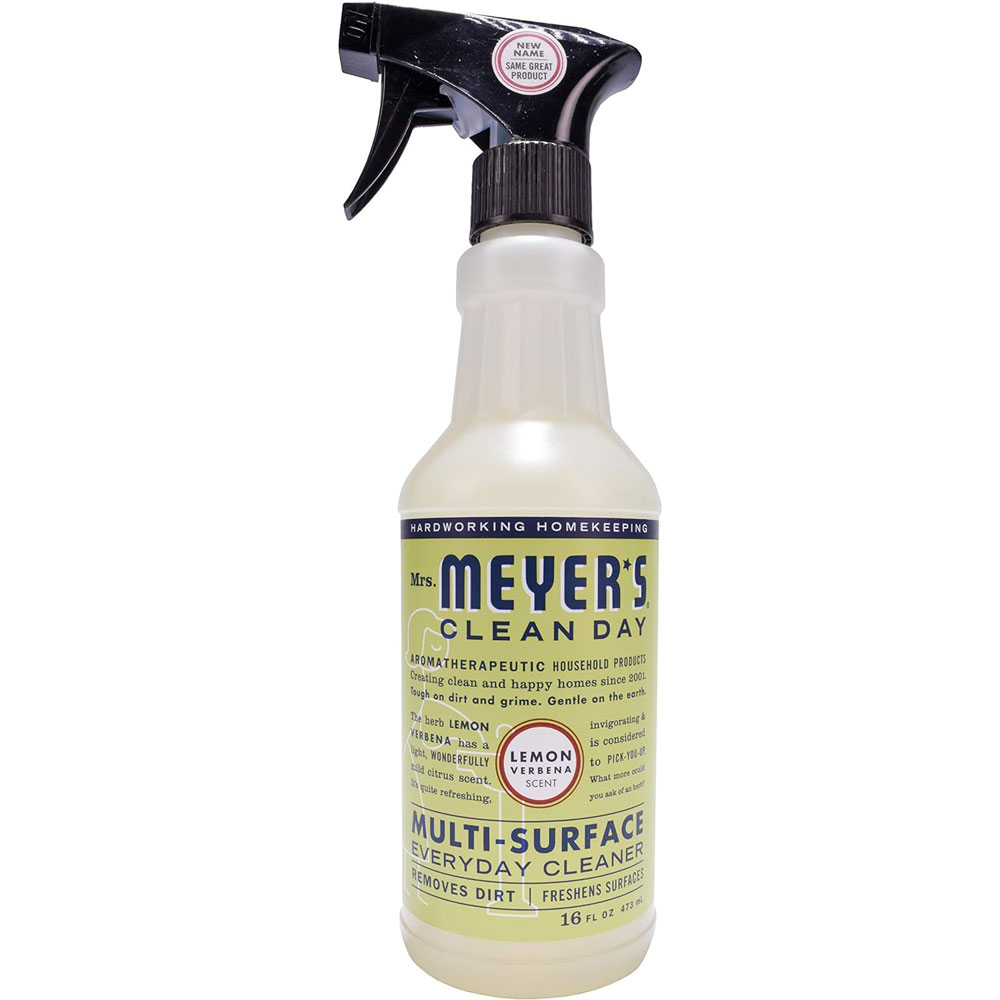
Made using plant-derived ingredients and with a fresh, lemon verbena scent, this spray should be a cleaning cupboard staple if you want to avoid chemicals but still crave sparkling results.
3. Smoke or burning odors
This is definitely one to be dealt with immediately – a burning smell could point to an issue that is quickly going to get out of hand. Ignoring this is one of the most common fire risks in your home.
'If you smell anything burning, especially a smell of burning plastic or electrical parts, quickly shut off the main power and call an electrician,' says Yaeir Moinzadeh. 'This smell may be an indicator of faulty wiring or an overheating appliance.'
'A burning smell in the home is always a red flag, especially if it has an electrical or metallic smell,' adds Gordon Chalk. 'This usually means electrical wiring issues which can lead to overheating and even fires if left unchecked.'
'If you smell smoke in your home, it could be anything from a burst electrical component on a computer to a short in the wiring of your lights,' explains Al Ruggie of ASAP Restoration LLC. 'No matter where the smell is coming from, it’s critical that you identify it immediately so that you can prevent additional losses. Many house fires have been prevented by people smelling something odd, investigating it and then determining if it can be solved now, or if the fire department needs to be called. If it can be solved now and without risking your health and safety, then quickly address it before the issue gets worse.'
4. Musty, earthy notes
If you have ever toured a fixer-upper that has been empty for some time, you will be familiar with that damp, earthy smell that seems to frequent these types of properties. However, if you smell it in your own home, you need to take action – this is one of the most common signs of mold.
'A musty smell is one of the most common signs of mold or mildew growth in the home,' explains Gordon Chalk. 'It usually means moisture where it shouldn’t be. It could mean leaking pipes, poor ventilation, or a breach in the building envelope allowing moisture to get in.'
So what should you do if you pick up on this unwelcome odor?
'Check out areas like basements, bathrooms, or behind furniture,' suggests Elizabeth Shields. 'You’ll probably see water stains or discoloration on walls. If you find mold, wearing a mask and gloves when cleaning it up is necessary – don’t just ignore it!
'Use a mold remediation spray or vinegar solution to clean it up,' continues Elizabeth. 'Avoid using bleach, as it can sometimes worsen the problem. If left untreated, mold can lead to serious health issues like respiratory problems.'
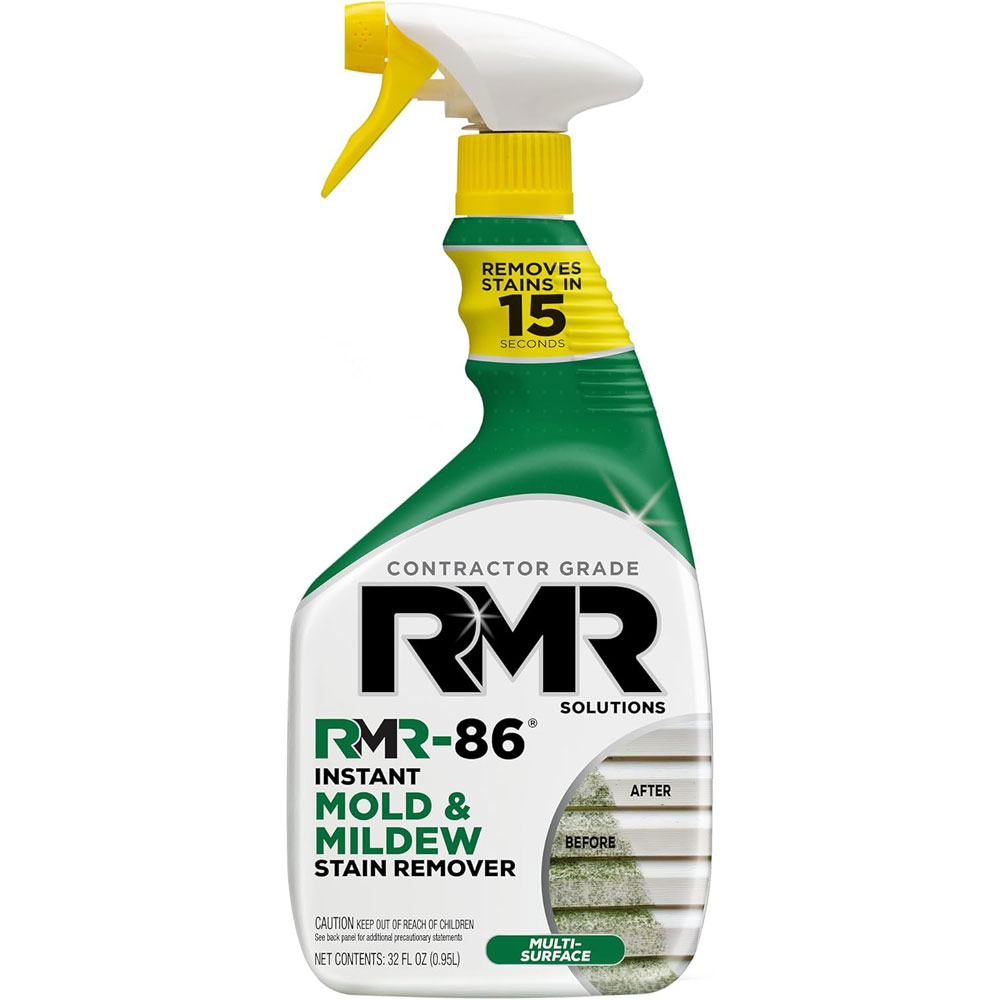
Banish black mold and mildew stains fast with this spray. No scrubbing is required – just spray it on the stains and watch them disappear. Not only will this get rid of stains, but it will also remove any lingering odors.
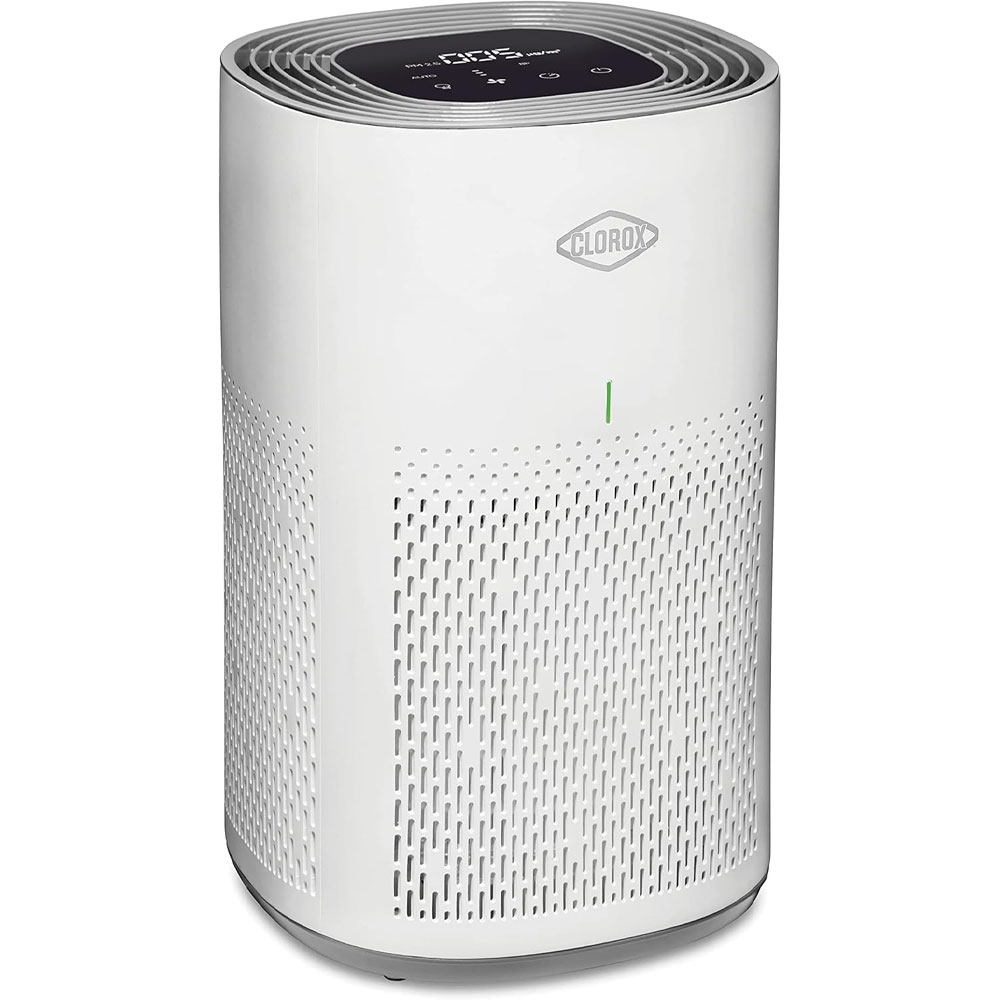
If you've discovered a mold problem in your home you need to be sure you eliminate any potentially dangerous spores fast and an air purifier is a great way to do this. This one delivers 360° air purification and captures allergens, viruses and bacteria.
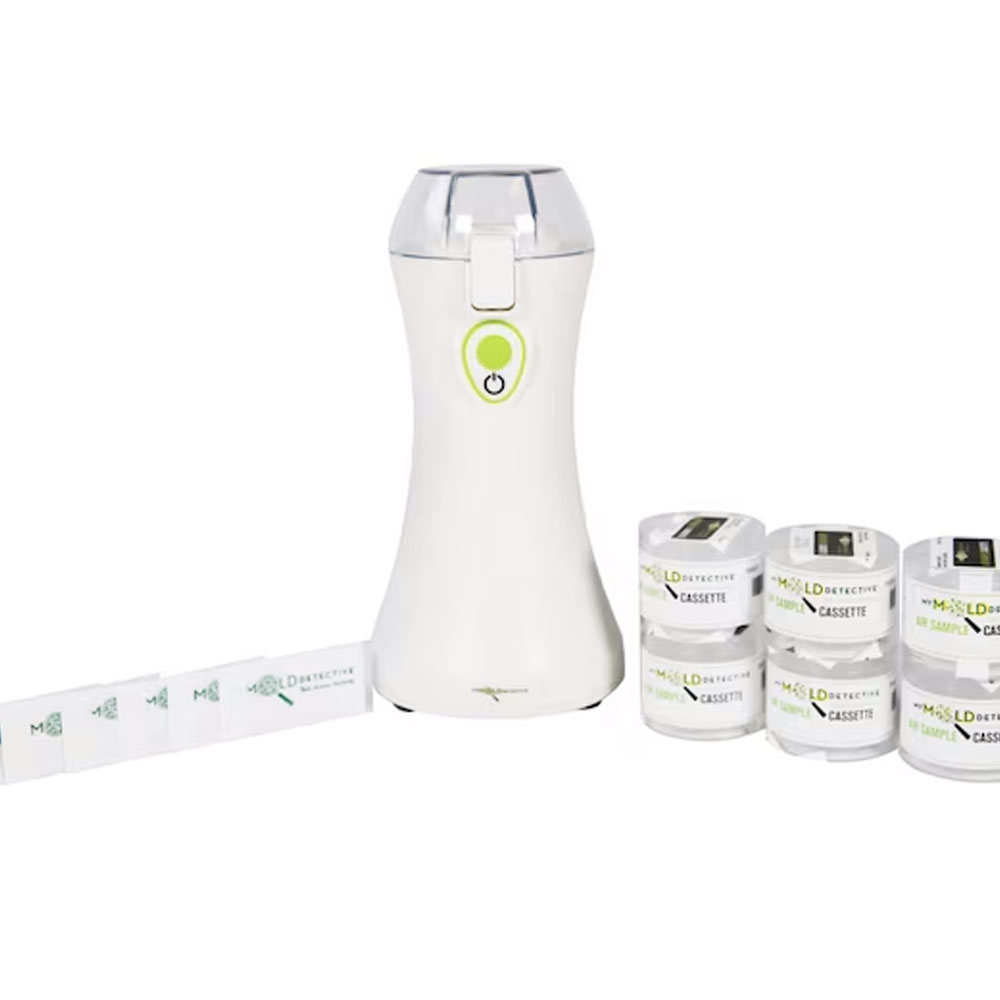
If you suspect a mold problem this home testing kit will reveal not only the severity of the problem but also the type of mold you are dealing with. It uses the same air sampling method used by professionals yet it is not complicated to read the results.
5. Sewage stench
Sewage is definitely not a smell you want lingering in your home. But what does it mean?
'There are a couple of different reasons why your home might experience an unpleasant sewage smell inside – or outside for that matter,' begins Al Ruggie. 'This can happen when septic systems get overloaded when the field is clogged, when the tank is full, when your vent stack is clogged, or any number of other issues that can befall a home. Some of them, such as an evaporated S-trap, are easily solved with a gallon of water down the drain, but others, like a septic field backup, might be serious issues that need to be taken care of promptly to avoid additional damages.'
Take a look into how often should you pump your septic tank and be aware that there are other causes of sewage smells too.
'A sewage-like smell in your home usually means a plumbing issue. This smell comes from drains, toilets or vents,' says Gordon Chalk. 'It could mean that there is a sewer line leak, backed up drains or a dry P-trap in your plumbing system.'
So how can you detect it and be sure it is a problem that warrants further investigation?
'The smell is strongest near drains, toilets or basements, where sewage backup is common,' continues Gordon. 'Be on the lookout for gurgling drains, slow drainage and visible signs of sewage backing up. Check for blockages in drains or call a plumber to inspect your sewer line for leaks.
'If it’s a dry P-trap, running water down the drain may fix the problem,' adds Gordon. 'Whatever you do, don’t pour chemical drain cleaners into the system without knowing the root cause of the blockage.
'Ignoring sewer gas can cause health issues, and respiratory problems and may indicate a bigger structural issue with your plumbing system,' warns Gordon.
6. Decay or rotting
You really can't miss this one. If you smell anything that screams 'I'm past my sell-by date', sit up and pay attention.
'If you smell the distinctive odor of rot or decay in your home, there is a good chance that there is a dead animal of some sort either underneath the home, or inside of the walls,' says Al Ruggie. 'This can happen in a variety of ways. Mice can enter, make a home, and then die in it all without you ever realizing they were guests in your home. If this happens, the bodies degrading will cause an odor, especially in the warmer months, and this can be a sign that your property is not secure against vermin and other pests.'
Once you have dealt with the more immediate problem, you need to look into how to prevent mice from getting into your house again. Your first step should be to check there are no gaps or holes in the exterior of your home.

If you want a chemical-free and safe way to drive pests out of your home, this pack of six ultrasonic repellents, that you simply plug in, is just the thing. While humans can't hear the sound given off, mice and all manner of bugs can – and they will soon scatter with regular use of this device.
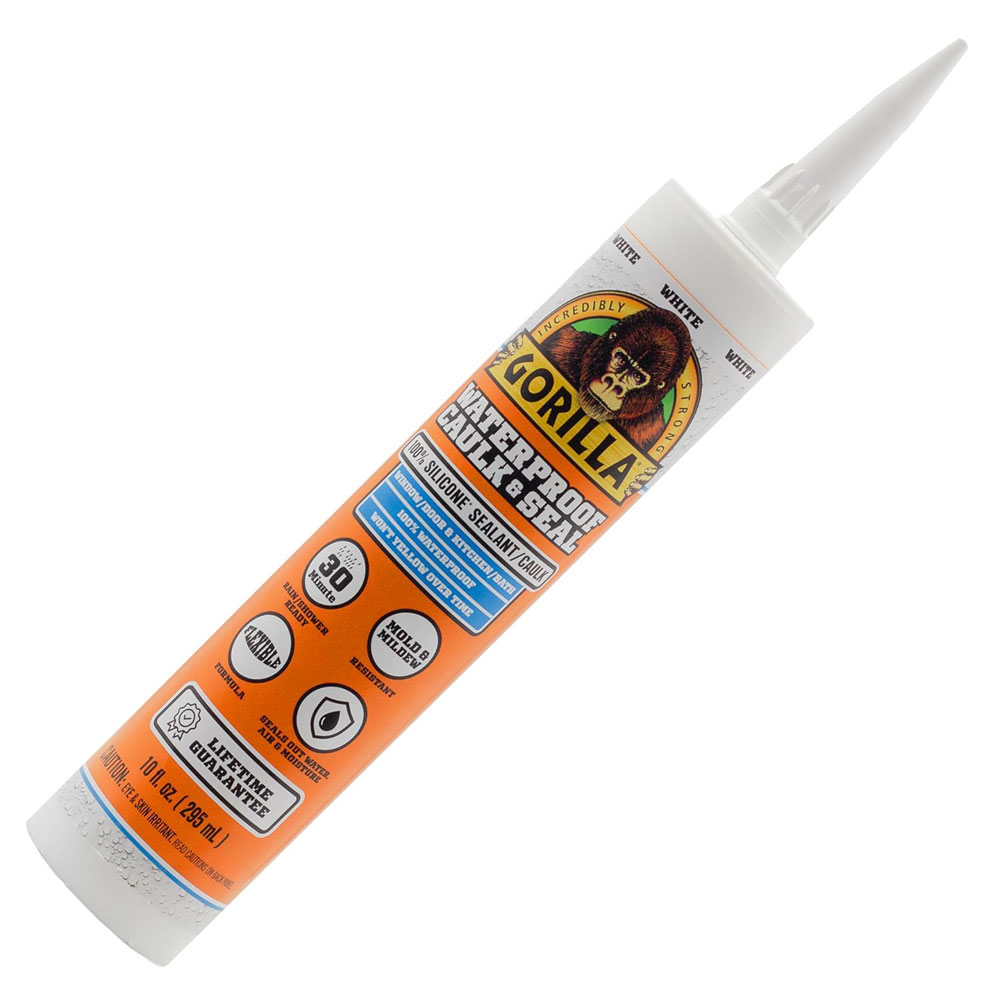
Make sure there are no gaps around doors and windows that mice and other pests could crawl through and into your home by checking over your property thoroughly. This waterproof caulk is an easy way to fill in gaps and cracks and is waterproof too, plus it can withstand freezing temperatures.
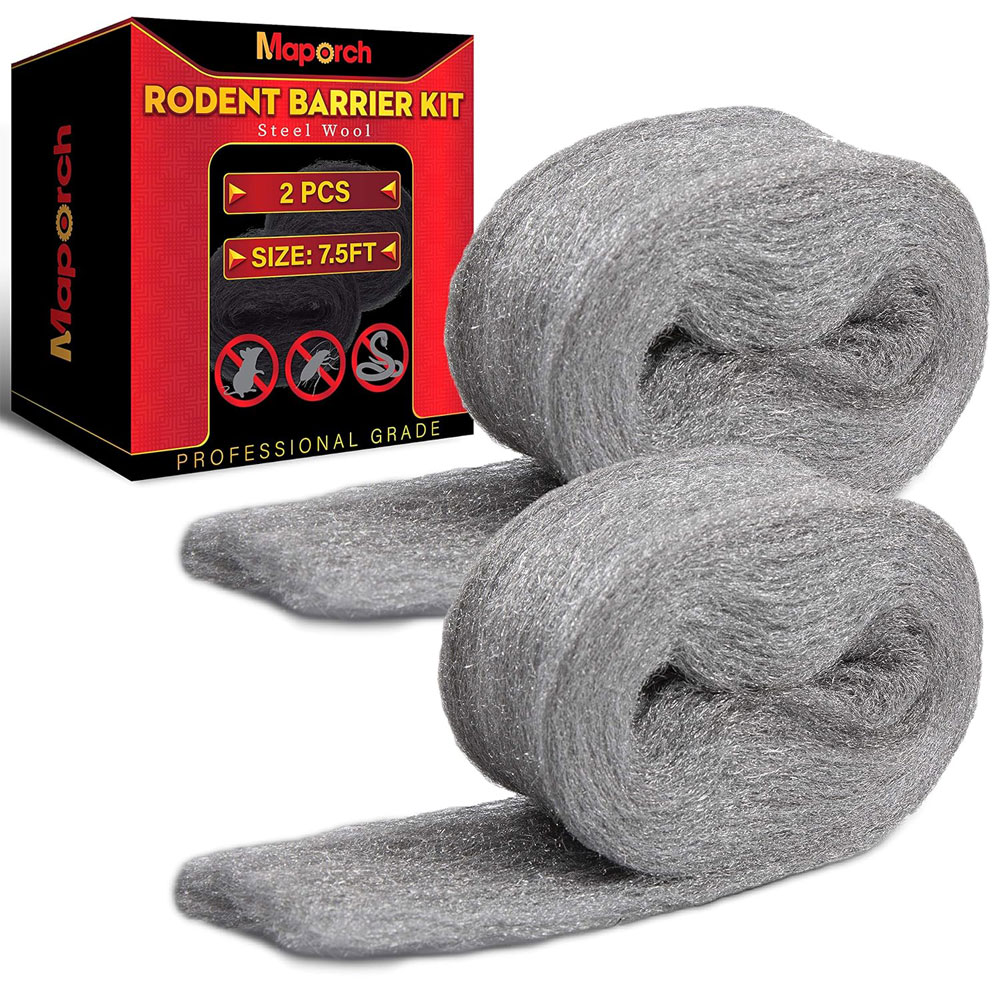
Steel wool is really difficult for mice to gnaw through so using it to plug up any gaps in the fabric of your home is a brilliant way to keep pests outside where they belong. Squash it into all manner of gaps and cracks and, when you're done, it also comes in handy for cleaning off rusty tools.
7. Rancid oily smell
There are two main reasons why you might be picking up on a strange oily smell in your home – but both need addressing.
'An oily or garlic-like smell can sometimes mean an issue with your heating system, especially if you have an oil furnace,' explains Graham Chalk. 'It could point to a crack or leak in the heat exchanger of your oil furnace, or oil dripping from the furnace components.
'Take a look around the furnace or in the vents when the heating system is running, look for soot near the furnace and check for increased energy bills,' continues Graham. 'This type of issue requires an experienced technician as a malfunctioning heat exchanger can cause carbon monoxide leaks.'
The other reason why you might be smelling a strange, rancid oily smell could well be that your kitchen cupboards are due for a clean-out.
'Check for old cooking oils or fats that have gone bad,' advises Elizabeth Shields. 'Inspect cupboards for expired oils or fats, and you might notice discoloration. Dispose of any rancid items properly and clean the containers. Don’t just use the oils anyway, they can lead to food poisoning. Letting it slide can create unwanted pests and odors in your kitchen too.'
Once you have got to the root of the problem, neutralizing kitchen odors should be your top priority.
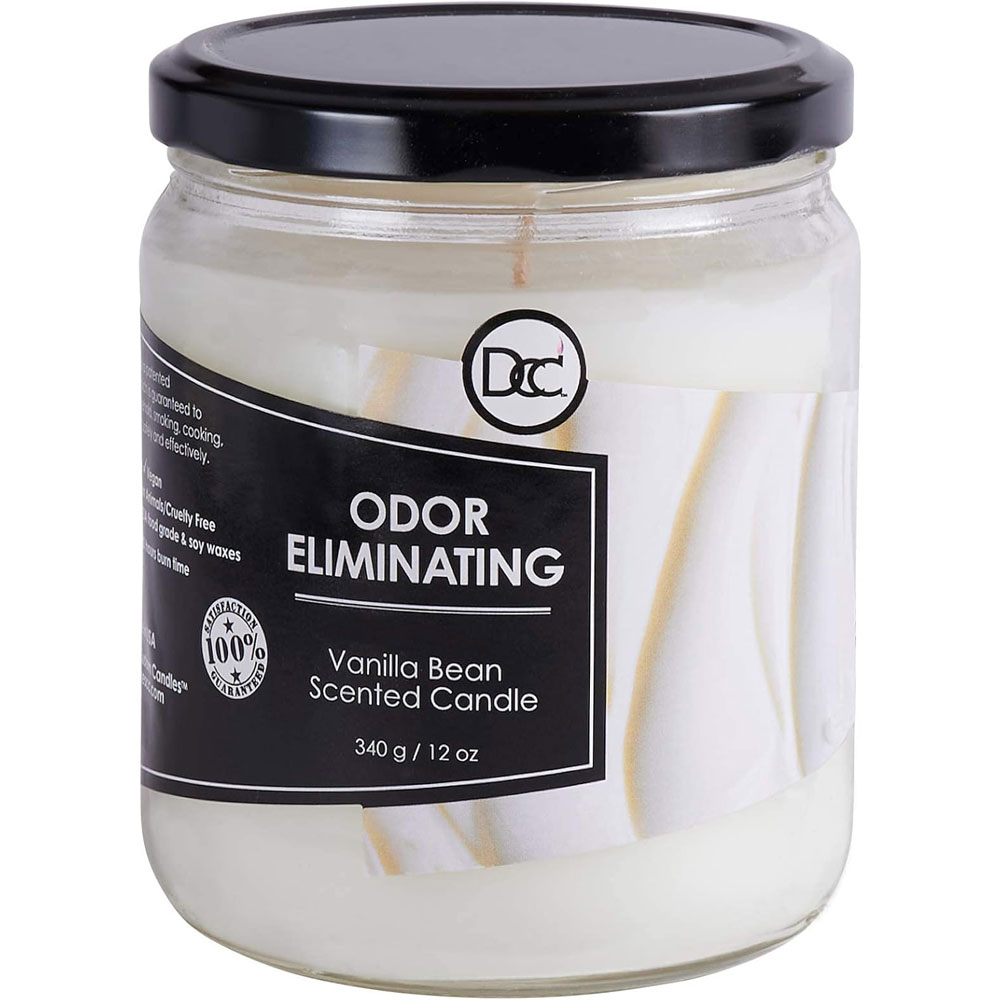
This soy candle not only gives off a delicious creamy vanilla scent when burning, but it also works to remove a whole host of unwanted household odors, including cooking smells, pet pongs and smoke.
FAQs
What should you do if electrical outlets smell of burning?
If you notice a burning smell coming from your electrical switches or outlets, you need to take action fast.
'With electrical switches or outlets, a burning smell can indicate overheating,' says Glenn Lewis, president at Mr. Appliance a Neighborly® company. 'This can be due to a loose connection, overloading of a circuit, faulty wiring, or a failing component. If the scent of burning gets sharper the closer you get to an outlet or switch, it may indicate this is where the source is originating.
'After turning off the power to the area, when removing the faceplate of the switch or outlet, there may be signs of burnt wires or melted plastic,' continues Glenn. Anytime you’re dealing with the electrical system of a home, it is best to contact an electrician. If homeowners suspect there is an electrical issue, don’t use the switches or outlets until they have been inspected by a trained electrical service provider.'
Once you have tracked down the source of any bad smells and taken the appropriate action, it is time to introduce some things that make your home smell good all the time to turn your home into a beautifully scented sanctuary.







